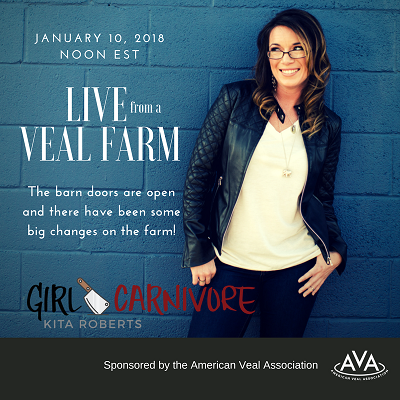Veal farmers knew a decade ago there was a better way to raise and care for milk-fed veal calves. The American Veal Association (AVA) established a goal in 2007 to move completely to group housing over a ten-year period. Since then, AVA members dedicated themselves to researching the best facilities to provide optimal care and the financial resources to make it happen by the end of 2017.
“As we start the new year here in 2018, I am pleased to confirm that all AVA-member companies and individuals involved in veal production have successfully transitioned to group housing and no tethers,” acknowledged Dale Bakke, AVA president. “Industry members have invested more than $50 million in building new facilities and renovations to achieve this milestone. Those members include Marcho Farms, Catelli Brothers, Strauss Brand Veal, Midwest Veal, Strauss Veal Feeds, and Provimi Foods.”
Additionally, the association reports castration, dehorning, tail docking or tethers are not practiced on AVA member farms.
Today, there are a variety of different facilities to house veal calves in groups ranging from as few as two up to groups of ten or more. These facilities allow for the Five Freedoms of Animal Welfare, which is the international standard for assessing expression of normal behavior in animals.
“The health and well-being of the calves has been and will continue to be a priority,” acknowledged calf veterinarian, Dr. Marissa Hake. “Newborn calves need special attention to grow and thrive. It was important that the desire to move calves to group pens did not sacrifice the need for individual care and attention. We found calves individually penned for the first 8-10 weeks is still optimal for calf health, just as is standard in heifer and beef raising.”
AVA has established best practices for raising milk-fed veal:
- Adequate pen space is provided for each calf to easily stand, stretch, lie down, turn around, groom naturally, and have contact with other calves. Calves are in group pens of two or more calves, and no calf is individually penned after 10 weeks of age, unless it is for health reasons such as sickness, injury or disease.
- Calves are never tethered.
- Calves are handled in a calm, controlled and gentle manner.
- Animal caretakers are trained to handle calves with minimum stress to the animal and the consequences of inhumane handling are known and enforced.
- Facilities are ventilated and protocols are in place to minimize airborne particles to reduce odors, dust and/or noxious gases.
- All classes of calves are provided with reasonable protection from heat and cold.
- Facilities provide ample natural and/or overhead lighting.
- Pens are routinely cleaned and the resting area provides warmth, dryness and traction at all times.
Other changes in the milk-fed veal industry during this period include feeding some grain and roughage to the calves, in addition to the nutritionally-balanced milk formula, and marketing the animals at an older age resulting in larger calves of 475 to 500 pounds.
“Raising veal calves today is significantly different than what it was ten years ago,” said Hake. “AVA members, which account for a significant majority of the milk-fed veal raised and processed in the U.S., have demonstrated their commitment to extremely high standards of animal stewardship through this transition to group pens.”
Bakke added, “The AVA’s dedication to this achievement confirms the U.S. milk-fed industry is committed to the well-being of their calves and supporting a culture of continuous improvement to ensure positive change for animal care.”
It was May 9, 2007 when the AVA Board of Directors adopted a resolution calling for all U.S. veal farmers to transition to group housing methods by December 31, 2017. To learn more about the member companies of AVA and see images of the new facilities, visit www.AmericanVeal.com
Some AVA members also practice pasture-raised veal which provides another product offering for customers.














